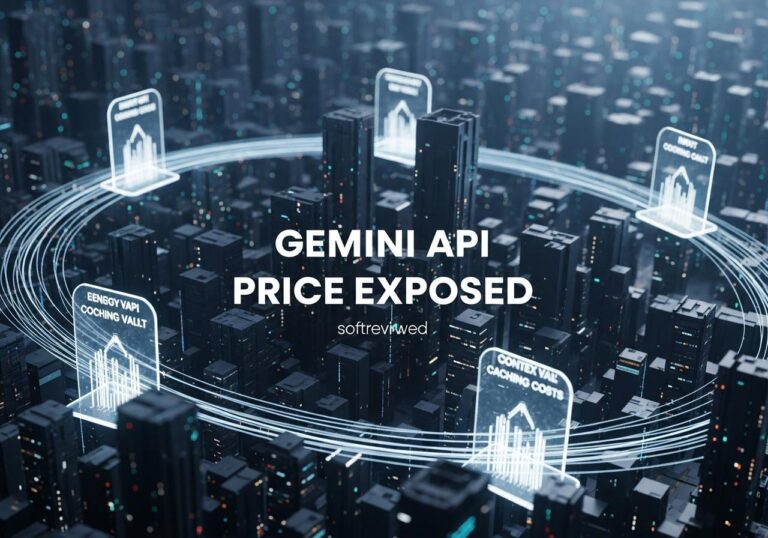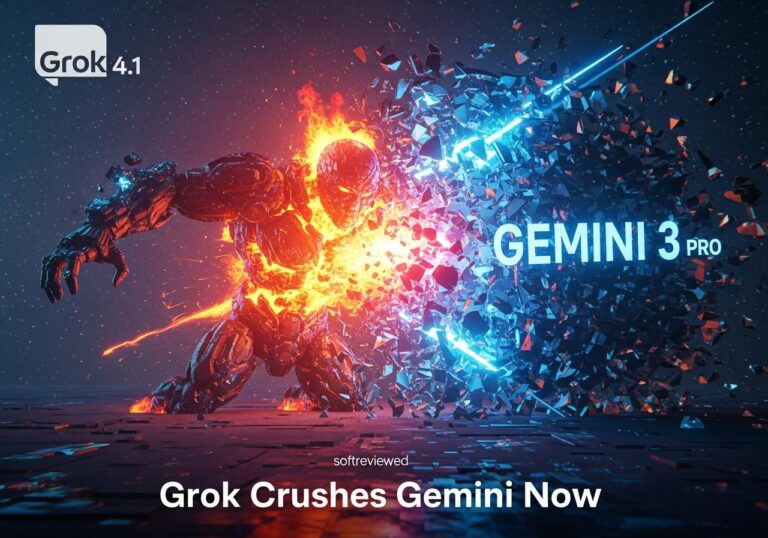💎 Gemini 3 API Preview Pricing
Google’s most advanced AI model now available with flexible pricing options for developers and enterprises
💰 Base Pricing Structure
Access Gemini 3 API with competitive pricing at just $2 per million input tokens and $12 per million output tokens for prompts up to 200,000 tokens. This pricing structure makes advanced AI capabilities accessible while maintaining high-quality results.
📊 Tiered Pricing for Large Contexts
For applications requiring more than 200,000 tokens, Google maintains its tiered pricing structure. Higher pricing tiers apply for these extensive context interactions, ensuring scalability for complex enterprise applications.
⚡ High-Throughput Processing
Gemini 3 API supports high-performance applications with impressive processing capacity of up to 1 million tokens per minute. This enables real-time AI applications and services that demand rapid response times and high throughput.
🔄 Multiple Processing Modes
Choose between standard and reasoning-intensive processing modes with differentiated pricing. This flexibility allows developers to optimize costs based on specific use cases, paying only for the computational intensity their applications require.
💾 Context Caching Benefits
Reduce costs with context caching functionality for repeated interactions. Pricing is differentiated by media type, with separate rates for text/image/video content versus audio processing, allowing for more efficient budget management.
🎁 Free Tier for Developers
Explore Gemini 3 API capabilities with a free tier before committing to paid usage. This allows developers to test, experiment, and prototype applications without upfront costs, making innovation more accessible.
Google Launches Gemini 3: The Cost of “Thinking” and the Agentic Future
The AI landscape just shifted again. On November 18, 2025, Google officially unveiled Gemini 3, its most advanced AI model to date. If you’ve been feeling like recent AI updates have been incremental, this one aims to change your mind. With a focus on deep reasoning, autonomous coding agents, and a radically transparent pricing model for its “thinking” process, Google is pushing hard to move from simple chatbots to true digital partners.
Whether you’re a developer looking to automate complex workflows or a business leader calculating the ROI of AI, the new “thinking” mechanics and pricing tiers are the critical details you need to know.
What is Gemini 3? The “Thinking” Model
At its core, Gemini 3 is a natively multimodal model—meaning it was built from the ground up to understand text, images, audio, video, and code seamlessly. But the real headline feature is its new Deep Think capability.
Similar to how you might pause to think through a difficult math problem before answering, Gemini 3 uses a “chain of thought” process to break down complex queries. Instead of just predicting the next likely word, it evaluates multiple possibilities, checks its own logic, and then delivers a refined answer.
Key Features at a Glance:
- 🧠 Deep Think Mode: A specialized reasoning capability that excels at math, science, and complex logic puzzles.
- ⚡️ Thinking Tokens: For the first time, the API exposes the “thought process” as billable tokens, allowing developers to pay for deeper reasoning only when necessary.
- 🚀 Google Antigravity: A new platform for developers that turns the IDE into an “agent-first” environment, allowing AI to write, run, and fix code autonomously.
- 🎨 Generative UI: The model doesn’t just give you text; it can generate custom interactive visual interfaces on the fly.
The Developer’s Ledger: API Pricing Breakdown
The most significant update for the tech community is the pricing structure. Google has released specific numbers for the Paid Tier, and it introduces a new paradigm: paying for the model’s “thoughts.”
Here is the official pricing for Gemini 3:
| Feature | Free Tier | Paid Tier (Per 1M Tokens) |
|---|---|---|
| Input Price | Not available | $2.00 (prompts ≤ 200k tokens) $4.00 (prompts > 200k tokens) |
| Output Price | Not available | $12.00 (prompts ≤ 200k tokens) $18.00 (prompts > 200k tokens) |
| Context Caching | Not available | $0.20 (prompts ≤ 200k tokens) $0.40 (prompts > 200k tokens) Storage: $4.50 / 1M tokens per hour |
| Grounding (Search) | Not available | 1,500 RPD (Free Daily Requests) Then $14.00 / 1,000 queries |
| Data Privacy | Used to improve products | No (Your data is private) |
💡 The “Thinking Token” Twist
Notice the Output Price section? It explicitly states: “including thinking tokens.”
This is a game-changer. When you ask Gemini 3 a complex physics question, it might generate 500 tokens of visible answer, but it might have used 3,000 “invisible” tokens to reason through the problem first. Unlike previous models where you only paid for what you saw, you are now billed for the total cognitive effort.
This aligns with the industry shift toward “System 2” thinking (slow, deliberate logic), but it means developers need to be mindful. A simple question that triggers a “Deep Think” spiral could cost significantly more than a standard query.
For Developers: Enter “Google Antigravity” 🚀
If you code, the pricing is just one part of the equation. The new Google Antigravity IDE is designed to make those tokens worth the cost.
In a traditional setup, you use AI to generate a snippet of code, paste it into your editor, and hope it works. Antigravity gives the AI agent control over the editor, the terminal, and even a browser.
- Agent-First Development: You can give the agent a high-level goal like “Build a React app that tracks my crypto portfolio,” and it can create files, run terminal commands, browse documentation for API updates, and debug its own errors.
- Grounding Integration: With the pricing allowing for 1,500 free Grounding requests per day, developers can build agents that actively search the web for the latest libraries or docs without racking up a huge bill during testing.
The “AI Ultra” Consumer Tier 🐘

While the API pricing is for developers building on Gemini, regular users want to know about the subscription. To get access to the absolute best version—Gemini 3 Deep Think—Google has introduced a new AI Ultra subscription tier.
At roughly $250 per month (enterprise/pro pricing), this is a massive jump from the standard $20 subscriptions we are used to. This tier is aimed squarely at “power users”—researchers analyzing massive datasets, filmmakers using the new Veo 3 video tools, and companies where saving 10 hours of senior developer time pays for the subscription instantly.
For the average user, the standard Gemini 3 Pro (likely included in the standard AI Premium plan) will be more than enough, offering a balance of speed and reasoning without the “Ultra” price tag.
Expert Perspectives
The reaction from the tech community has been mixed but attentive.
Holger Mueller, an analyst at Constellation Research, noted the shift in focus:
“Google keeps innovating fast… Google also released its agentic framework Antigravity for developers – with the agent running more autonomously than ever before.”
However, the introduction of “thinking tokens” in the billing structure has raised questions about cost predictability. If a model “overthinks” a simple problem, does the developer pay the bill? (The answer appears to be yes, though Google provides controls to limit the “thinking budget”).
Where This Is Headed 🚀
The launch of Gemini 3 signals a few clear trends for the coming year:
- The Cost of Intelligence: We are moving away from “text generation” costs to “reasoning” costs. Intelligence is becoming a metered utility, quite literally.
- Context is King (and Cash): With Context Caching priced at just $0.20 per million tokens, Google is aggressively encouraging developers to load massive manuals, codebases, or books into the model’s memory. This makes the AI smarter about your specific project for a fraction of the cost of re-uploading data.
- Agents are the New Apps: With Antigravity and the API’s function-calling capabilities, the line between “using an app” and “having an AI build an app” is blurring.
The Verdict
Gemini 3 is a muscular flex from Google. It effectively closes the reasoning gap with competitors and opens up a new frontier in transparently priced “thinking” capability. While the $12/1M output cost (when including thought tokens) requires careful management, the inclusion of generous free tiers for Grounding and affordable Context Caching makes it a compelling platform for developers.
If you want to dive deeper into the technical specs or start building, you can check out the full details on the official Gemini 3 blog post.
What do you think? Is paying for “invisible” thinking tokens a fair trade for better answers, or does it make budgeting too difficult? Let us know your thoughts!







